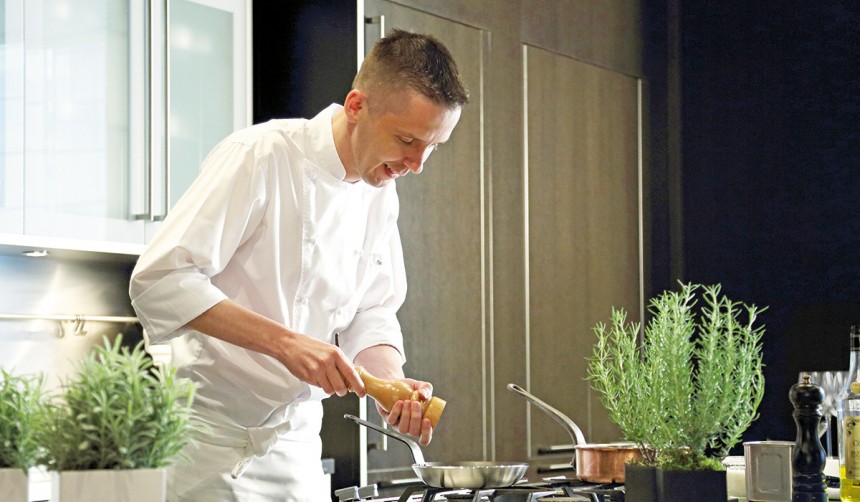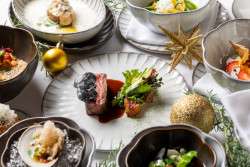
February 6, 2016
Andreas Fuchs
The Grand Hyatt Tokyo executive chef shares his story
Managing the culinary operations of a hotel like the Grand Hyatt is a monumental task. Nearly a dozen dining venues, featuring a wide variety of cuisines, require an extraordinary level of experience and expertise to unite. In September 2015, Andreas Fuchs took over as executive chef, arriving from the Park Hyatt Shanghai. Metropolis caught up with the German-born artisan to learn about what led him into the culinary arts, his experience, and what he has planned for the Grand Hyatt Tokyo.
When did you start cooking?
I first started cooking with my parents, around 11 or 12 years old. Then the desire grew to become a chef. At 16, when I finished school, I wanted to do an apprenticeship. I had an opportunity to do the apprenticeship, but three or four hours away from my home: in Austria.
How did your family influence your cooking?
My grandfather was a baker, and he had his own bakery in Berlin. When he still practiced and he had his shop, he took my aunt and my mom [there] and they helped out. He passed a lot of talents and skills on to them. They never opened their own bakery, but they baked a lot at home and that inspired me greatly. My mom comes from Berlin, my father from Bavaria, and we lived in Stuttgart. Though Germany is normally potato-dominated, the area around Stuttgart is pasta-dominated. So it all comes together, and every day, you had something different.
What did you learn in France and England?
The restaurant A. Beauvilliers [in Paris] was well-established, very traditional, very conservative sometimes, but that was why I went there. I did not want to learn the modern, all the new techniques. I was really focused on what were the basics for French food. In England, I worked in a countryside pub by the sea. The food was, again, completely different. England is seafood. In Austria, and when I worked in the deep south of Germany, we had seafood, but it was more of a specialty.
What is your philosophy today? How do you plan menus and what do you want to bring to diners?
For me, [what’s] most important is to respect the restaurants we have—to keep the authenticity of every place. I look at every dish in every outlet I go, I eat it, and then I ask myself, “Would I come back?” Even a simple steak could be this. Really, when I am thinking of the dishes and planning, this is most important for me. Do I come back? Do the guests come back? And it doesn’t always have to be the most “Wow!”-effect dish; it can just be the homestyle food.
How do you take a dish that doesn’t quite grab you and elevate it?
The best [thing] you can do is to ask your colleagues. Ask the people around you. They’re cooking with you, they support you. Most important is listening to other people. Egos do not work out in the kitchen.
What advice do you have for aspiring cooks?
Stick to what you like, stick to what you know. Stick to dishes that maybe your mom cooked, but then take them and make them your own. Add new ingredients, add new preparations. Don’t be afraid to take risks.







